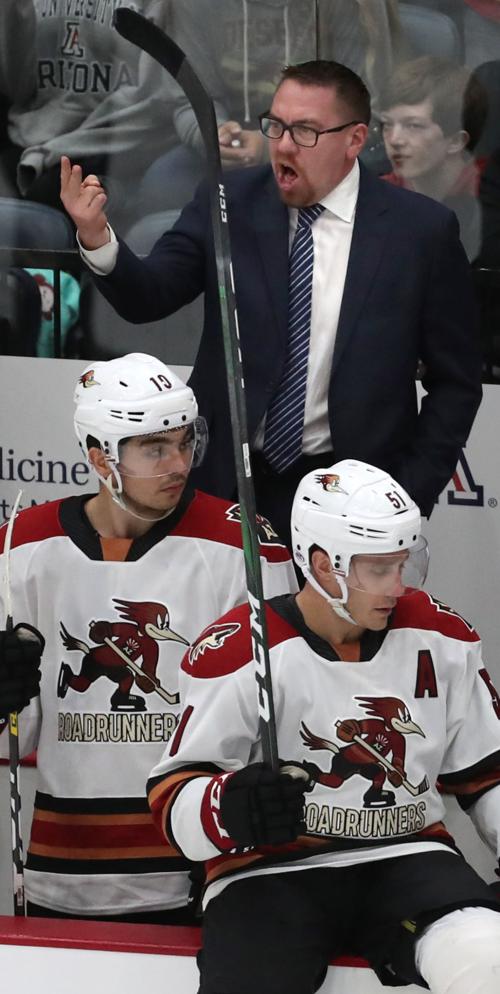Tucson Roadrunners coach Jay Varady isn’t a big fan of talking about schedules.
“We have no control over that,” he’s been known to say a time or two — or 10.
But the Roadrunners are welcoming the Stockton Heat to Southern Arizona on Friday and Saturday for the first time this season, and it feels a tad different than the typical midseason series.
“It’s kind of like a playoff series,” Roadrunners forward Michael Bunting said. “I’m sure we’ll hate each other by the end.”
That’s what happens when you see the same teams over, and over, and over again in such a short period of time. That’s what’s happening for the Roadrunners of late, with multiple matchups with Stockton and its Northern California neighbor, the San Jose Barracuda. A week ago Saturday, Tucson defeated the Heat 4-3 in overtime in Stockton before carding a 5-3 road win at San Jose the following night.
The weekend series marks the third and fourth of seven matchups between Tucson and either the Heat or Barracuda over an 18-day span.
And, for added flavor: Stockton and Tucson just happen to carry the top two records in not only the American Hockey League’s Pacific Division but its Western Conference, too. Trailing only Eastern Conference division leaders Hartford and Toronto, the Heat (7-1-1-1) and Roadrunners (8-3-0-0) will reach Friday’s faceoff with the third and fourth best marks across the entire 31-team AHL lineup.
Crunching multiple matchups, like those against the Heat and Barracuda, against the same teams in short shift isn’t Tucson newcomer Jon Martin’s favorite scenario, but he rolls with it — and the benefits it does bring to the table.
“Personally, I think I’d rather have a little bit of space in between, but nothing you can do,” said Martin, a forward who spent parts of the past four seasons with San Jose. “We kind of know what they do. We know what their systems are.”
Varady and his staff don’t ignore the opportunity to scout opponents; but, in echoing his sentiment that the schedule isn’t something players and coaches can do anything about, he said the focus stays primarily on his own team and how they can improve each time out.
“That’s where 90% of our focus lies,” Varady said. “It’s more our focus on our team and what we’re trying to get done on our lineup and on our players.”
That’s comparable to Varady’s perspective earlier in the season, too – when his group hadn’t played anybody and couldn’t conduct much, if any, opposition scouting. Varady admits, however, that there is more information available the more teams play each other.
“Obviously the more you play a team, the more you understand them, the more you know about them. As you continue to play these teams in the division, you know four, six, eight times, you obviously start to understand their personnel a little better and what they’re trying to get accomplished,” he said.





